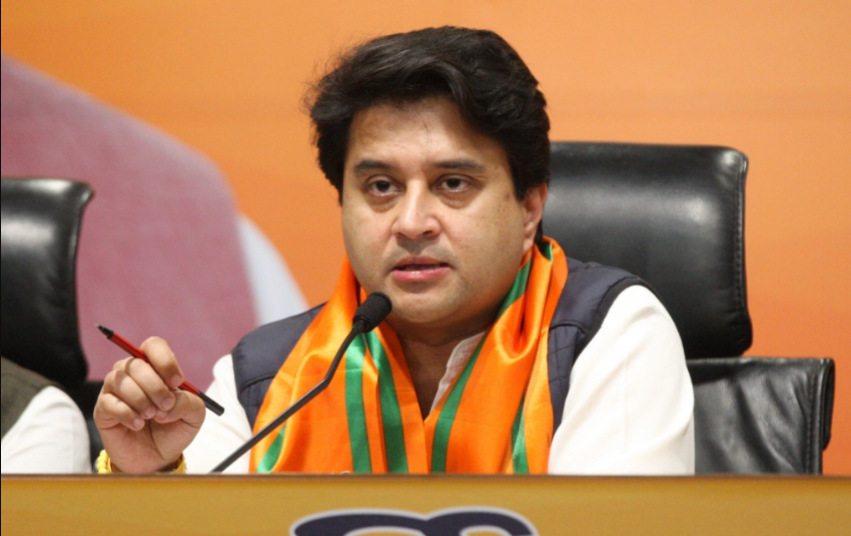New Delhi: Defection is the order of the day among Indian politicians at present. The shifting of allegiance from one party to another appears more like changing jobs with the promise of a better pay packet. Politicians tend to seek power… so usually they move to a party which is in power. It may be at the state or the national level.
Due to this trend, the Congress has suffered the moist. The grand old party has lost the highest number of its electoral candidates as well as MPs and MLAs to other parties in the past seven years. The maximum gainer of this defection has been the BJP since it came to power at the Centre in 2014. One of the biggest names that comes to mind regarding defection is none other than Jyotiraditya Scindia.
A total of 222 electoral candidates left the Congress to join other parties during polls held between 2014 and 2021. Another 177 MPs and MLAs quit the party since 2014 till now, shows an analysis of the candidates’ poll affidavits by the National Election Watch and the Association for Democratic Reforms (ADR).
The BJP also lost 111 candidates and 33 MPs and MLAs during the elections since 2014. Yet, the saffron party remained the biggest gainer. A total of 253 candidates and 173 MPs and MLAs came to its fold quitting their respective parties, the report said.
The Congress saw 399 of its leaders quitting the party to join others in the past seven years. On the other hand, 115 candidates 61 MPs and MLAs joined the party since 2014.
The National Election Watch-ADR report is based on the analysis of the poll affidavits of 1,133 candidates and 500 MPs and MLAs. They changed parties and re-contested elections held during the Lok Sabha and Assembly polls since 2014.
Another party to have borne the brunt of defection is Mayawati’s Bahujan Samaj Party (BSP). A considerable number of its candidates and lawmakers have joined other parties during the elections. Since 2014, 153 BSP candidates and 20 lawmakers have left the party. On the other hand 65 electoral candidates and 12 lawmakers have joined the BSP from other parties.
The report shows that Samajwadi Party (SP) lost 60 candidates and 18 lawmakers to other parties since 2014. It, however, saw just 29 candidates and 13 lawmakers coming to its fold from other parties.
Thirty one candidates and 26 lawmakers of the Trinamool Congress (TMC) left the party to join another party in the past seven years. There were 23 candidates and 31 lawmakers who have joined the TMC leaving their respective parties since 2014. The report however, doesn’t take into account the recent activities of some elected BJP MLAs in West Bengal. A number of them like Suvendu Adhikari and Rajeev Banerjee left the TMC to join the BJP ahead of the Assembly elections held earlier this year. However, four who got elected on BJP tickets, have again returned to the TMC.
The Naveen Patnaik-led Biju Janata Dal (BJD) lost three of its electoral candidates and six lawmakers switching sides in the past seven years. It, however, also saw 16 electoral candidates and three lawmakers coming to its fold from other parties. It has not suffered any real damages because the BJD is in power in Odisha.
The Janata Dal-United (JD-U) lost 59 of its candidates and 12 of its MPs/MLAs as they switched sides during the elections. The party, however, saw a total of 23 candidates and 12 lawmakers coming to its fold from other parties in the past seven years.
The report shows that the NCP lost 52 of its electoral candidates and 25 lawmakers in the past seven years. However, it also saw 41 candidates and eight lawmakers joining the NCP from other parties during this period.
The Left parties have also suffered major dents due to defections. The CPI has lost 13 candidates and two lawmakers while the CPI(M) also saw 13 contestants and six MP/MLAs joining other parties. In lieu however, only five candidates have joined the CPI while a lone person have joined the CPI(M).
The ‘most plausible’ reasons behind such defections and switching of parties include absence of value-based politics. Most of the defections happen due to lust for money and power. The other reasons are a strong nexus between money and muscle, reward for office, and dearth of efficient, honest and credible leaders, according to the National Election Watch-ADR report.
“Until and unless these trends are not reined in, our current electoral and political situation is bound to deteriorate further,” the report said. It has made a host of recommendations to arrest the trend. Among them is ‘a comprehensive’ law to regulate political parties’ affairs.
